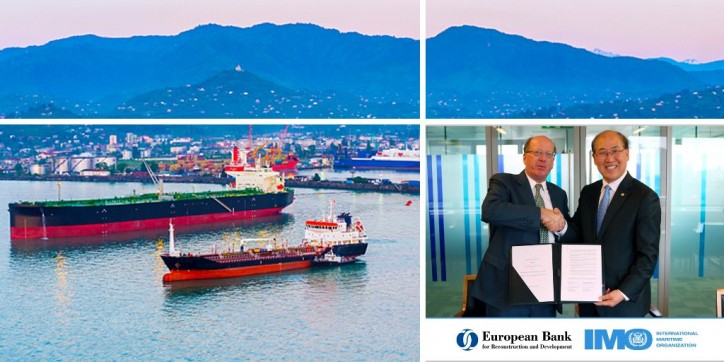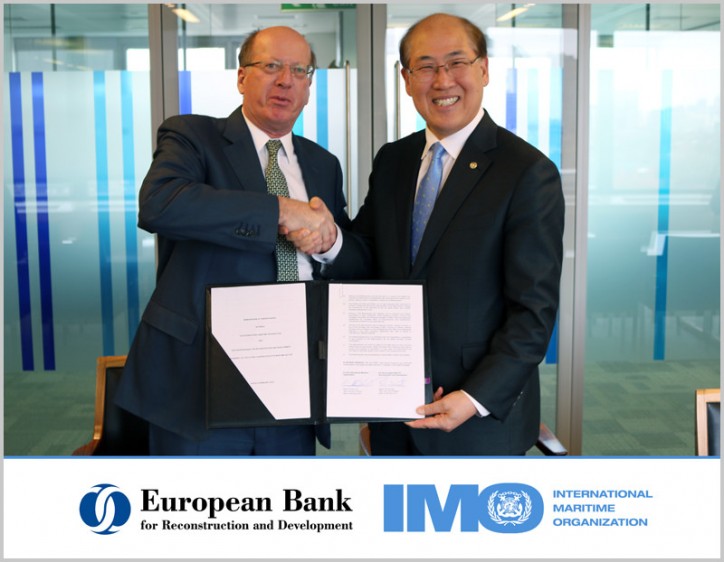The International Maritime Organization (IMO) has signed a new partnership agreement with the European Bank for Reconstruction and Development (EBRD). The agreement will help promote sustainable shipping through a range of safety- and environment-focused capacity-building activities in the maritime and port sectors in selected countries.

It brings together IMO, the United Nations maritime agency which sets global standards for safe, secure, efficient and environment-friendly international shipping, and the multilateral development bank EBRD, which has experience in supporting comprehensive transport related development activities and practices in the maritime and port sectors.
A Memorandum of Understanding (MoU) was signed on Thursday (8 February) by IMO Secretary-General Kitack Lim and the First Vice President of the EBRD, Phil Bennett. (Photos here.)
"This strategic partnership, combining IMO's global mandate and outreach and EBRD's experience and expertise on investment and finance, is expected to contribute a great deal to sustainable maritime transport and the implementation of the United Nations Sustainable Development Goals," said Secretary-General Lim.
As part of the United Nations family, IMO is actively working towards the 2030 Agenda for Sustainable Development and the associated SDGs. Most of the elements of the 2030 Agenda will only be realized with a sustainable transport sector supporting world trade and facilitating the global economy.
The IMO/EBRD MoU represents the first such arrangement to be established between IMO and a multilateral development bank.

In addition to providing investment financing, IMO and EBRD will work together under the agreement to provide technical advisory services, project preparation and planning, capacity building and institutional development, focusing initially on joint projects with the national authorities of Azerbaijan, Egypt, Georgia, Morocco, Tunisia and Turkey.
Gap analysis will be carried out with specific projects likely to focus on a range of safety- and environment-related issues, centred on implementing and enforcing IMO regulations. These projects could include:
- investment opportunities in sustainable transport
- safe transport of solid bulk cargoes and dangerous goods
- facilitation of maritime traffic and electronic business and implementation of a maritime single window
- identification of locations and business models for port reception facilities for ship-generated waste
- sensitivity mapping and oil spill exercises
- promoting acceptance and implementation of IMO’s 2012 Cape Town Agreement on fishing vessel safety
- assessing emissions in ports and developing emission-reduction strategies;
- looking at opportunities to improve ships in terms of reducing air pollution and greenhouse gas emissions and improving energy efficiency
- potential regulatory and policy reforms associated with ships using shore-based power sources in port (known as ‘cold ironing’)
- identifying opportunities to invest and propose investment for LNG bunkering infrastructure
- risk assessments for marine bioinvasions and identifying key locations for port-based reception facilities and contingency measures, as well as appropriate commercial models.
Source: IMO